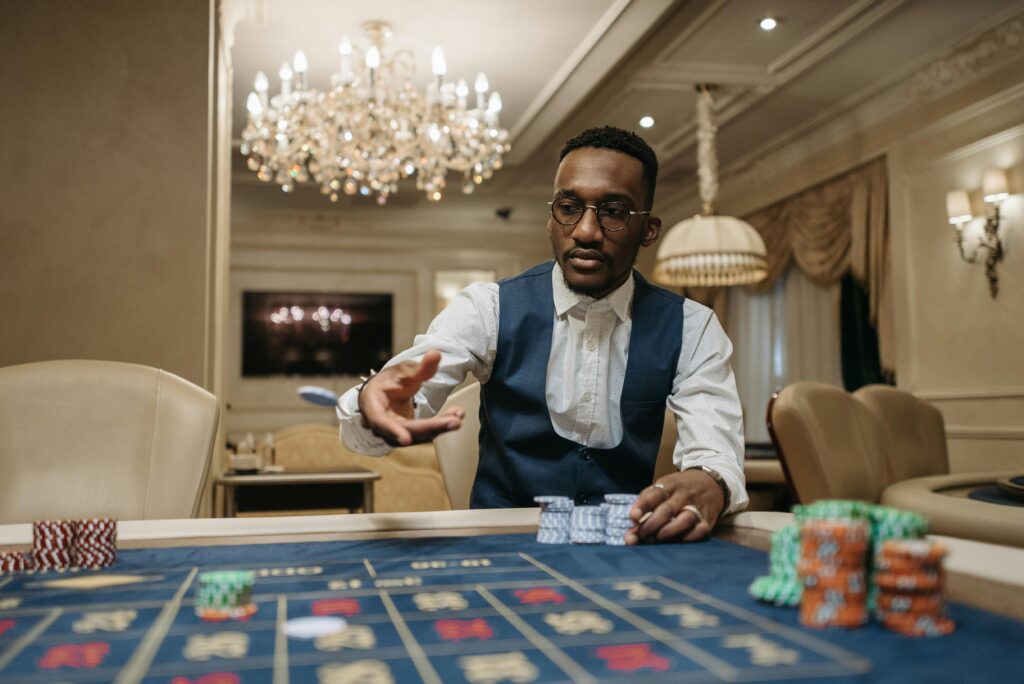
In Nigeria and across much of Africa, the face of fame is changing.
Instead of the movie stars or musicians of days gone by, today’s tastemakers are digital. Influencers with massive online followings are setting the tone for everything from fashion and music to, increasingly, sports betting and online gambling.
Their voices are incredibly powerful, especially when they’re talking about something their followers care about deeply: money, entertainment, and the chance to win big.
Yet there’s also a big downside to this trend as the country grapples with economic woes, meaning people often gamble what they can’t afford.
Read on to find out about the influencer boom that is gripping much of Western Africa.
Betting tips, predictions, and a growing community
Among the wave of influencers gaining traction, a particular kind stands out: sports betting influencers.
In Nigeria, where football is more than a game but also a part of the national rhythm, betting has become a daily ritual for millions. Matches are watched in local viewing centers and bars, and bets are placed with the hope of turning a few naira into something bigger.
For many fans, betting is a strategy, rather than just luck – as dangerous as this thinking may be. And that’s where influencers come in.
These online personalities spend time analyzing fixtures, researching team stats, and posting predictions – sometimes free, sometimes paid. Their followers reply with prayers, emojis, and thanks when a prediction lands. Many refer to their favorite tipsters with reverence, calling them Baba, a term of deep respect.
These communities are formed on Telegram channels, Instagram Lives, and WhatsApp groups and they’re proving to be extremely popular, especially in an economy where financial security feels increasingly out of reach.
Betting as survival, not just entertainment
Nigeria’s ongoing economic challenges, sky-high inflation, job scarcity, and widespread poverty, have created an environment where betting isn’t always a luxury or vice. For many, it’s a side hustle. A chance. A possible way out.
What makes online betting especially appealing is how accessible it is. Many platforms accept wagers as low as ₦50 (about $0.03), inviting participation from people of all income levels. Housewives, students, office workers: they’re all part of the ecosystem. Even those with no formal education can participate via mobile phones and simple user interfaces.
There’s also a deep psychological pull. Betting taps into the same emotion that drives participation in religious communities: belief in better days. For some, the two are not in conflict. They might attend church on Sunday and still check the odds on Saturday night. Influencers, knowingly or not, often stand in this in-between space as both entertainers and advisors.
What influencers don’t always say
Of course, this isn’t without risk.
Behind the bright Instagram Stories and winning slips lies a murkier reality. Betting, especially when driven by financial desperation, can spiral. And while most influencers and betting platforms display messages encouraging “responsible gambling,” there’s little accountability when things go south.
It’s also worth asking: what’s in it for the influencers?
Many have partnerships with betting companies. Some are paid a flat monthly fee to promote a platform while others earn a commission based on how much their followers bet (and lose).
That setup raises questions about where the influencer’s loyalty lies: with their followers, or with the companies paying their bills?
Some influencers seem to handle this with care. Others are less transparent and, while many genuinely want their followers to win, the reality is that the house almost always does.
There are also legal and ethical grey areas, like underage betting. Despite age restrictions, young people sometimes access betting sites through older relatives or fake accounts.
There have even been cases of individuals pawning phones or borrowing just to place a bet. These stories often go unmentioned on social feeds but are part of the wider picture.
Despite the concerns, there’s no denying that influencers are rewriting the rules of engagement in Nigeria’s gambling scene. Betting promotions – be they a post-match breakdown, a tip for tomorrow’s game, or a link to the best casino bonus codes, are their main focus, but they also help to build communities among their followers, as mentioned earlier.
The future of influence in Africa’s digital economy
Still, the rise of influencers in Nigeria and beyond is part of a larger shift. As the continent becomes more connected and more mobile, the traditional ideas of celebrity, marketing, and even financial opportunity are being rewritten.
For the betting industry, influencers help platforms reach new audiences, build trust, and shape behavior, but with that power comes responsibility.
As this space continues to grow, so too will the questions about how influence is used – and who it ultimately serves.
One thing is clear: the face of betting in Africa is changing. And more often than not, that face is on your phone, giving tips, celebrating wins, and shaping a conversation far bigger than sports.










